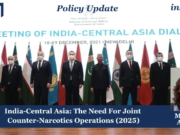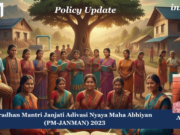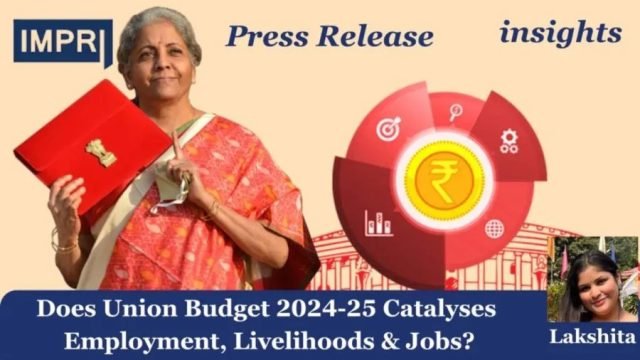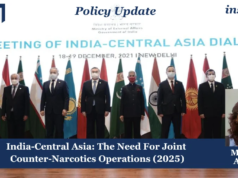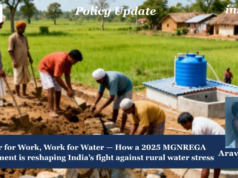Press Release
Lakshita Singh
#IMPRI Center for Work and Welfare (CWW) , impact and policy research institution, New Delhi, hosted an interactive panel discussion on the topic “Employment, Livelihoods & Interim Budget 2024-25” on 25th July 2024, under the IMPRI 5th Annual Series of Thematic Deliberations and Analysis of Union Budget 2024-25, as part of IMPRI #WebPolicyTalk.
The budget panel discussion was chaired by Professor Suchita Krishnaprasad, a former associate professor and Head of Department at the Economics department of Elphinstone College in Mumbai. To start, Prof. Krishnaprasad provided an overview of the budget, acknowledging that while the pandemic triggered the largest decline in India’s GDP and amidst the geopolitical tensions, the country has still made progress of 7% plus growth rate and with an increase of nominal GDP at 9.6% year on year basis.
She further states the statistics about the inflation which has been in control but the problem of food inflation still prevails at 7.5 percent, trade deficit has accordingly declined, forex reserves are set ample and equity markets are also seen stabilized. There has been an increase in the corporate sector and gross fixed capital formation rate at 52% from post covid till present. Tax cuts are announced like personal income tax to boost consumption. She further talks about how it impacts our economy?
According to the economic survey of 2023-24- 53 lakh employment reduction in the manufacturing sector has been seen, plus an increase in the service sector which does not primarily mean the high quality of services, it can probably be the push factor from the manufacturing sector because of the low quality of worker lives. Government has turned to the private sector for more engagement and investment in employment facilities and it has in turn reduced revenue expenditure in place of education and health. It has also announced an employment linked incentive scheme which would be effective in the long run still remains as a question.
Prof Sarthi Acharya, Professor (Delhi Chair), Institute for Human Development, discussed the creation of meaningful jobs, income inequality and the dream of Viksit Bharat. He elaborates about the manufacturing sector in which the msme plays a great role incorporating about 96% of all enterprises and 40% of the total exports. Position of manufacturing in contributing better livelihoods should be in the hands of Msme’s.
Unemployment in the country is about 3 crores and there has been an increase in the self employment and unpaid family workers upto 11 crore and more than 50 lakhs respectively. He further elaborates that in recent scenario agriculture is not absorbing more labor, so one of the main ideas of budget employment is strengthening of the specialized banks like SIDBI and skill development of MSME sector which is more dependent on handicrafts and handlooms and more technological advancement plus more emphasis on research and development should given in accordance within this sector.
Average salary of a person still remains very low, about 8-10k per month. According to the budget 2024- India needs to create 74 lakh non farm jobs each year until 2030 which is itself very challenging.
Moreover, there has been criticism on the relaxation of import duties in electronics, solar panels which goes in contrast with the ideas of “Atmanirbhar Bharat”. But nonetheless there has been some major attention that has been given to the employment sector in the budget and elimination of wealth inequality remains a major challenge that needs to be addressed.
Mr Sandeep Chachra, Executive Director, ActionAid Association, India focused on unemployment of youth and informal sector and talked about whether the employment linked incentive scheme is effective and also gave an overview of the rural economy.
He gives a social class analysis with the budget that has given more emphasis on youth and middle class societies which comprises a small part of population in comparison to the low income levels. The government has taken a softer approach in incentivising private sector and Mr. Chachra also talked about the budget announcement of providing 1 crore internships in top 500 companies in 5 years. But the challenge arises of these 500 companies which do not absorb much labor based on the qualifications of the person. So these need to be defined as well.
Moreover, the gender gap in the employment sector is a challenge and lower quality of worker rights which is called as wage depression looms large. The government should focus on skill development and target poor people and low income societies and it should play the role as the direct recruiter for employment job creation. There has been positive measures in the allocation of funds in the rural and urban development by giving 2.6 lakh crores to rural areas and 2.2 lakh crores to urban with 10 lakh crore investments form private players.
Prof Ashok Pankaj, Professor, Council for Social Development (CSD) deliberates upon the inclusive growth towards Viksit Bharat. He states that growth has not been inclusive though measures are taken but it still lags behind. There have been some positive measures when it comes to rural economy development which is seen as an attempt to address the grievances of the people at local level.
During the economic survey, it has been announced that 75 lakh per annum jobs to be created, giving this task to the private sector but there is a gap between this and the actual obligation of the private sector. Asking the private and informal sector for job creation, the government has announced three schemes- first is DPT of 15000 in 3 installments of EPF provision with the person of max 1 lakh salary. It is estimated to be about 2.2 crore people but it is the post employment benefit, the question arises of the creation of jobs in the first place.
Second is the incentivisation of the private sector to become formal which is also a challenge. The budget announced skill creation of 25 lakh people in about 5 years and 1000 training institutions to be upgraded. He states that education remains a major factor for employment and due shares of resource allocation to the poor states should be given for the infrastructure development and other development projects and not just to a few states. Budget has given ample attention to rural agriculture and employment which is a positive measure , approximately 10% of the budget is allocated to this.
Professor Randhir Singh Rathor targets the schemes that are to create 1 crore jobs and these schemes to be regularly checked upon. Further he questions about the budget announcement of upgrading 1000 ITI out of 15000 ITIS and questions it to be effective. Touching upon other schemes like national apprenticeship promotion schemes, these should be implemented well enough and monitored throughout the country.
Further talking about the internship schemes, he states that it shall boost the self confidence of young minds not only supporting the institutions but also starting their own startups to create jobs which could prove to be beneficial. New job creation opportunities can also be created in green technologies like for example the PM solar panel scheme to 1 crore houses, it will not only boost the particular manufacturing sector, there will also be demand for the workers at the installation stage like electricians. Moreover, the tourism sector can also prove to be beneficial in creating employment opportunities and investments should be done in the same.
Lastly, Prof Swarna Sadasivam Vepa, Visiting Professor, Madras School of Economics (MSE) discusses various issues of concern regarding growth and employment, employment polarization, digitalisation, organized and unorganized manufacture. She elaborates that employment elasticity has gone down from about 1% in the seventies to 0.1% now which is also known as jobless growth. Growth in employment has to be 5% per annum to absorb all new entrants. Youth in high and medium skilled jobs has reduced from 10.4% in 2019 to 8.9% in 2022. Job polarization is increasing and has been apparent in 2022 meaning, rise in low and high skill jobs and informal sector and decrease of medium skilled jobs.
High degree of automation in high skilled jobs lead to decrease in other back office job opportunities like in the software sector. Moreover, job creation in the manufacturing organized sector is decreasing. There should be a policy towards the rise in the formal sector. Service aggregators at online platforms provide jobs at low skills which is also seen as an extension of the informal sector.
The gig workers on the contractual basis which are believed to be 7.7 to 18 million- viewed as additional job creation do not have good security and work quality as well. They also don’t have enough representation in the labor economy- according to the national statistics based on annual periodic labor force survey, the platform workers are missing. According to reports, Finance Minister Nirmala Sitharaman is likely to announce a social security fund for temporary workers or gig workers in the Union Budget 2024 to provide medical and accidental insurance coverage as well as retirement benefits which would be a good measure.
In sum, the budget discussion spanned positive views to constructive critiques economists worried about persistent inequality, agricultural challenges, and lagging job creation. The mix of optimism for initiatives like skills training and renewable energy with troubling signs like GDP declines underscores the complex, uneven nature of India’s development.
With more holistic, inclusive policy making, strong progress can continue, overcoming remaining hurdles. India’s diversity necessitates tailored solutions tackling unique regional and sectoral barriers. But its promise and recent advances highlight cause for hope. Public investment and cooperation should also be taken into account. Moreover, we need to keep in mind that one size one policy doesn’t fit all. There should be a common ground in each area for development, taxing of passive consumers should be done and focus on skill resources should be duly given.
Lastly, Professor Suchita Krishnaprasad concluded the event by extending gratitude to the IMPRI team for successfully hosting the panel discussion and ensuring its smooth execution.
Watch the event at IMPRI #Web Policy Talk
Employment, Livelihoods, and Union Budget 2024-25
About the Contributor: Lakshita Singh is a research intern at IMPRI, and currently pursuing BA history hons at Delhi University.


